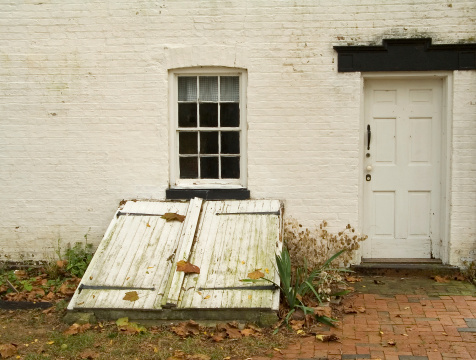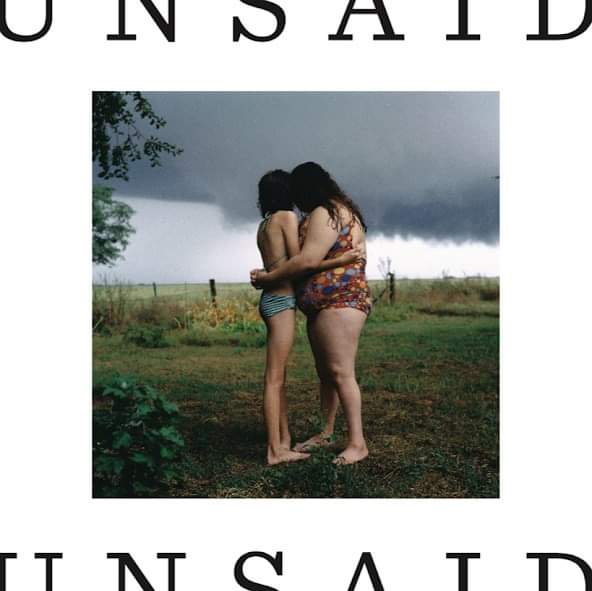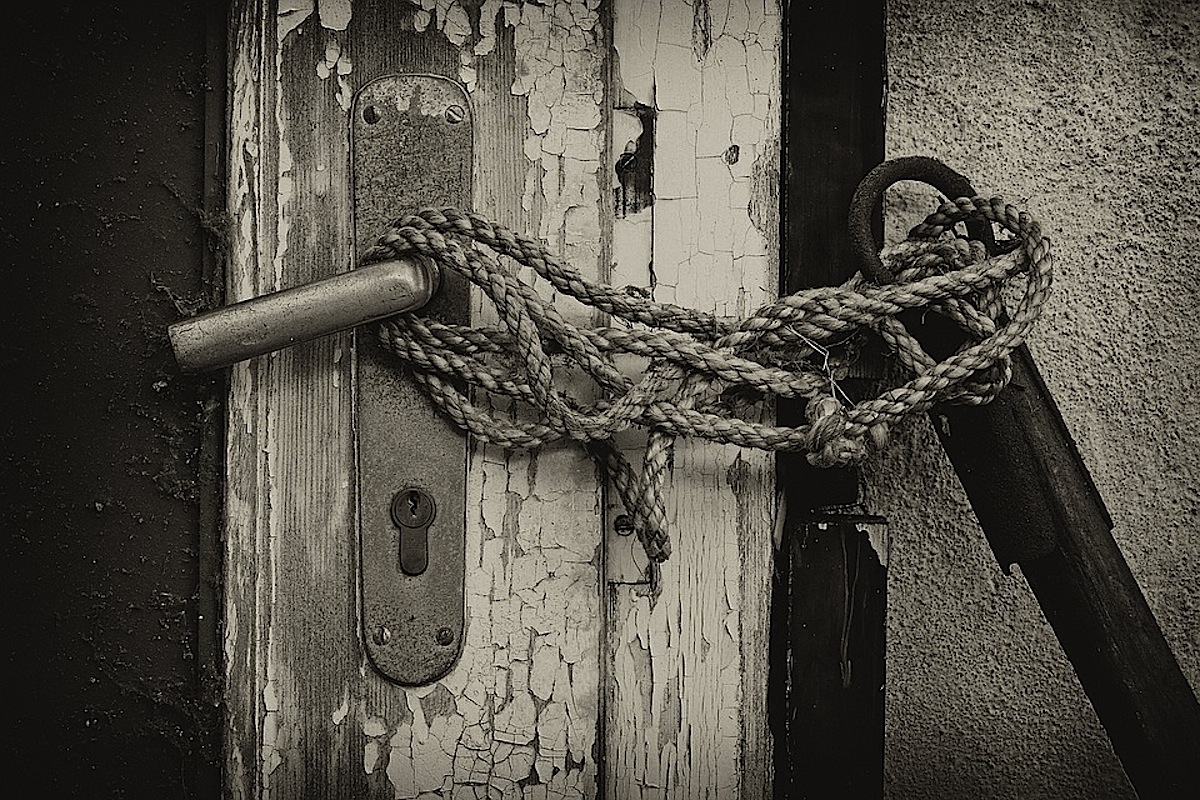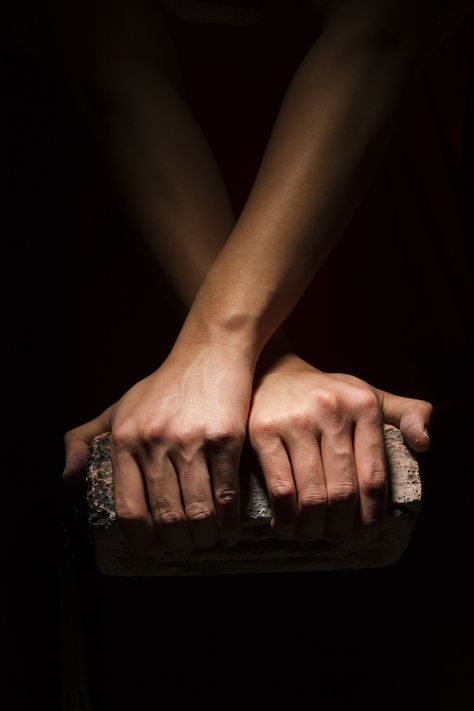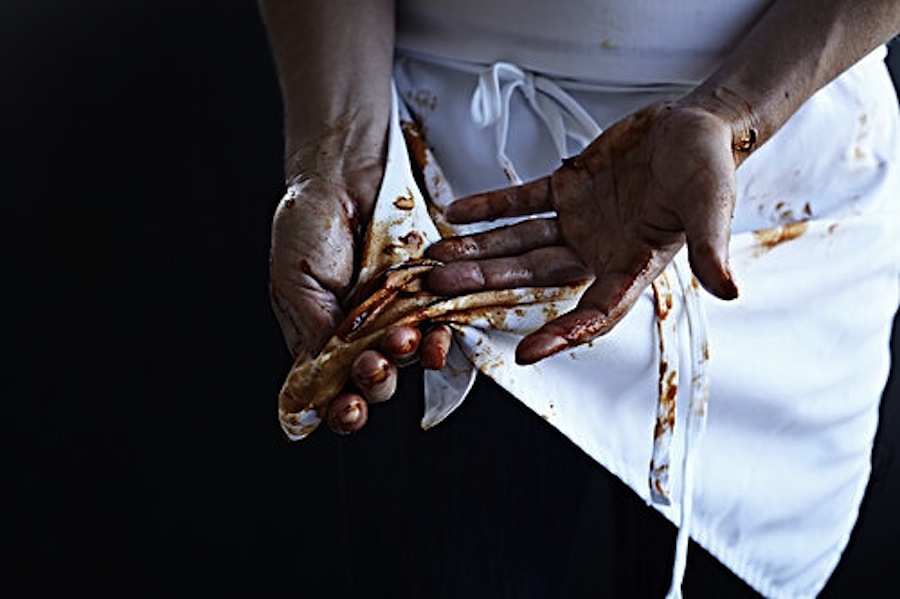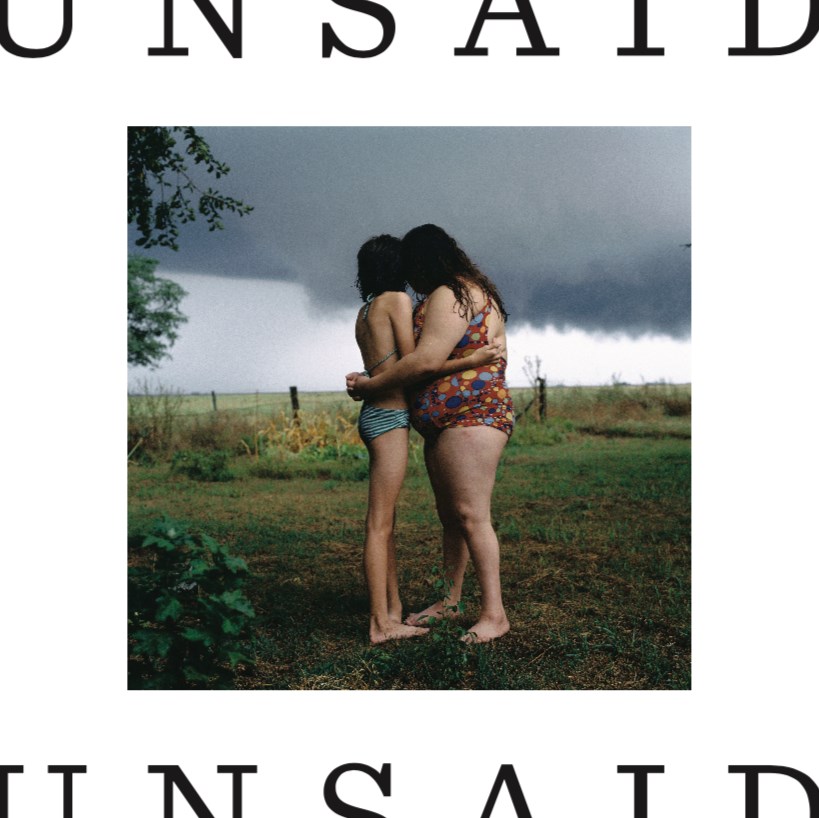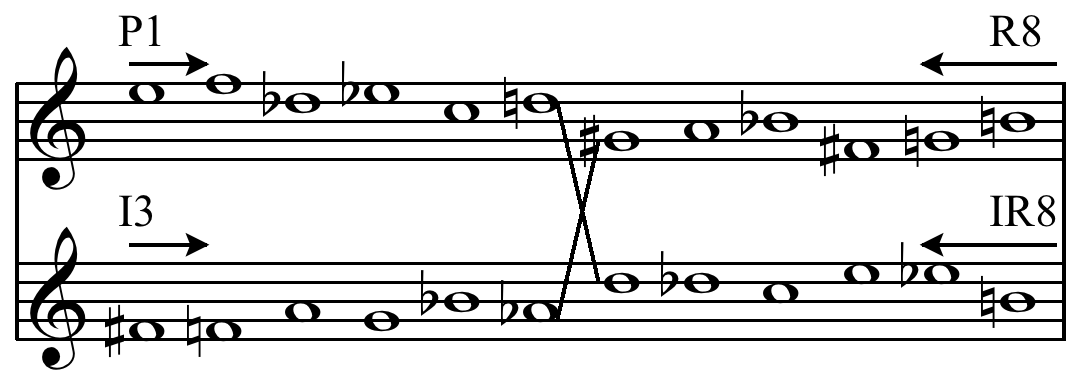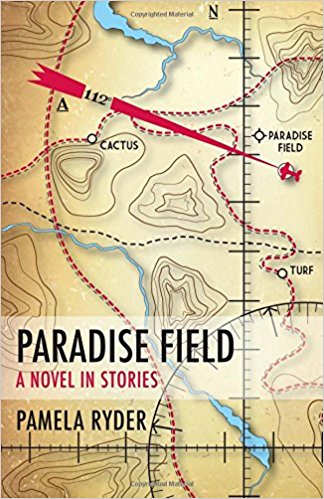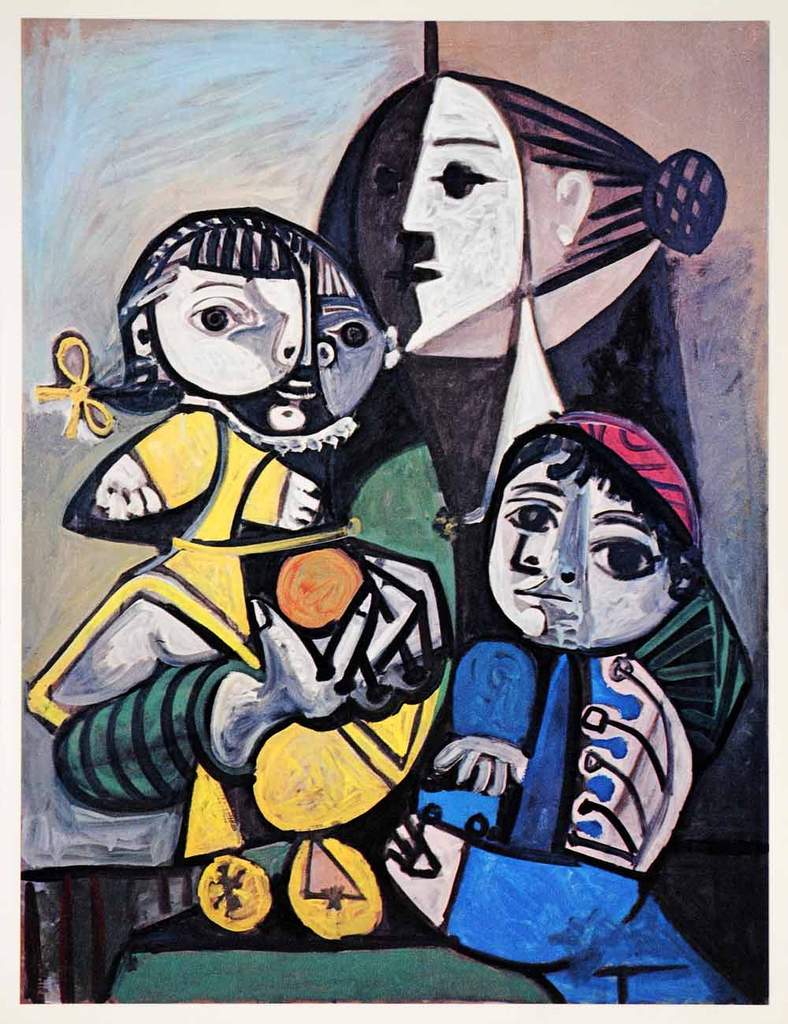
Why don’t I spare you and cut to where I cash in on my upbringing. My sister, in the attic, lit fires on towels drenched in shampoo. My brother just back-packed the gasoline around the kitchen, then later, smarter, eye-dropped spots onto corners of pillows, collars, scarves, face-cloths, etc. My mother, to start, had little soot-colored mice in glass cases on the porch that she either found frozen or pink and pulsing in the mornings. Coming in during breakfast with her hands full of them– my brother tainting the milk with gas, sister burning supermarket coupons– my mother would say a little grace whatever the case was, dead or new-born. I suppose, at this point, on top of all this, what seems all so unnecessary so soon in my telling, is that no one cares if I say that I know how to deafen things.
Something about my mother made her want every room the same. The house was a double-decker, all medium-blue wallpapered. The kitchen was big without windows. All the floors had the same small-nubbed plain gray carpet. My mother got all the furniture on lay-away. We all had the same furniture—same bed, armoire, desk, chair, stand-up closet. It was all a fancy lacquered wood—hotel wood. Unlike the rest of us, my brother kept his wood waxed and used the reflection to look down his throat to see, if at all, where the gas was stewing. When she was strong, our mother said, prove what you want to prove. Other times, never mind the rest of them, she told my brother, I like your smell.
My mother wore nightgowns like every other woman. She must have resembled something you’ve been cradled by. And if you’ve lived in a house without a sidewalk, if your house doesn’t have a front yard or a little gate and a bit of grass or a step up to the house, if your house has none of these things and it doesn’t even have a sidewalk, if when you open your front door you are stepping off the curb, you are backing up against the house’s wall, holding yourself in against the traffic, mornings, shimmying along, rush-hours, sucking in, if that was the kind of house you walked out of whenever you were going somewhere, then we have something else in common. What we must have in common are the days I left the house to play, no matter how cold it was, and walked through the leaves, and passed hours whistling through neighbors’ yards, scouting out a dog to deafen, under the sun and clouds, through wind and rain. We must at least have weather in common. Tell me you know where I’m coming from.
To be more exact, the carpet was better called a rug, and it was covered in dog hair and wig hair and bits of food and spilled things and pins and needles and things, shreds of papers that used to be bills, maybe, wood shavings, mouse droppings, streams and steams of gasoline. This isn’t to say I was the one following them around with a pan and a broom or even a pail of water. I may have opened some windows in the living room. My mother pointed to the messes, things got addressed. My mother wasn’t that far off from a mom. Everything we did she was the beginning of, the way it was supposed to be.
The first time I wrapped my hands around the neck of a small dog and pushed my fingers into its ears, it made me late for dinner. At home, my mother set the plate down in front of me. I was usually early for dinners, always hungry– I was and am a fat child, so to speak. After it stopped spinning, spinning and spinning, she put a barely eyeballed mouse down and covered it with a plastic cup. The blind, deaf and dumb baby mouse is worth repeating. Most likely she had the sense that what I had stolen from her hotel wooden bedside table had contributed to something. I had fed the dog her pills to get it to hush up. Then I had pushed my fingers into the dog. I can be plain when it comes to hushing.
By the time my brother got to everybody’s beds, we made do without mattresses. He got the smell into anything that would take it—the curtains, cushions, seat-covers, doilies, lint-balls in the laundry room. After fabrics he went for the dirt in the plant pots. Liquids were a given. He drank a good deal of gas. He got me to drink it. I will tell you that as a replacement for certain things, it made wonders.
As for my sister, she kept to her own. I’m exaggerating when I say gasoline and when I say fire. I’m not setting this up for anything. My sister just happened to burn heaps of things and useless things. When there was a heap of something useless, she burned it. Leaves, garbage, year-old dirty laundry. In the house, because of all its sameness, you didn’t see the smoke as much. My sister was the one to find the vacuum once in a while. I remember watching her get a knife and cut the hair out of it after it had filled the house with the new smell of burning plastic. After we left for school, our mother slept. The mail came, the sun passed through the windows, her little mice did their business, some died. Outside, whether it was warm or cold, someone was writing her a check in our favor. Once a week we all got in the car and went to the bank and then to the grocery store. Our brother, at the gas station, got his fill.
When I say I know how to deafen things, and I admit things about the dogs, I am just trying to get across to you what never came across. That is the entire purpose of this. I’m just mentioning these things quickly so far because I don’t want to seem full of myself. I am well aware that nobody would want to know about my mother if it didn’t, in some way, get something across. I’m only hoping that when I say, our mother, because the locks were broken in the car, sat in it while we did the shopping, you aren’t just nodding your head along. She spoke in a way that, to me, hardly differed from the sentences in the life science textbooks she put on the bookshelves. When she was still talking to me, she told me about anvils, hammers, drums, all the connections. I deafened her in about thirteen years. By the time I had lived that long, I would mouth words at her, she would squint, shake her head, turn away. She used to have an expression: “sitting on your ears.” It meant you weren’t listening. A couple of times I tried to sit on my ears. She helped me, pressing down on my legs, holding my neck steady. I would have been successful, had I been just a bit less fat. I deafened her while she was sleeping, very carefully, with long needles. I sanded the needles down with sandpaper so that they were as thin as three hairs put together, a tiny strand, like just a little wisp of hair, practically invisible, painless. What I made of them were just little pricks, two or three pricks at a time, every few hours, from where I curled up with her on the hotel bed frame. She slept through most sounds anyway, and, when she made noises, they sounded read-aloud. When she was drawing pictures of things that looked like rivers and dams and islands inside a head called ME, I knew what she was asking for. I picked things off the floor. I sanded them down.
In defense of my mother, from what we see of her in pictures, she spent most of her life in motel pools losing her hair to the men who braided us out of it. I was the first out, poked a little too roughly by the doctors, my mother has told me, because it was a cheap hospital, a hotel hospital, in the country, with cows around it, and dung and flies around the dung and a hot, dung-smelling noise around it all. She has told me that, because of her having to rest up around the buzzing noise of the dung, she argued with certain people to leave and all too soon got out of bed, went and got me and took the car and drove away. To put it in her words, the sound of bug on dung was all too much of a reminder of how things breed out of what she holds her nose over. She went into the room where the man was holding me, showing me to some other women. They made angry faces, threw their arms up, rushed at her. That’s when, she says, she knew I could be trusted. I got my gums on what must have been the arm of the man who fathered me. He waved me around and passed me to the women. I thrashed them. I gummed them too. They passed me back to my mother.
In the car, she told me there was a difference between people. Some people hear a baby cry and perk up their ears, their backs straighten. Those people hear a baby cry and their minds walk out of the room, their ears are listening apart from themselves, traveling through the house. Some other people, fewer people, hear the baby and say to themselves, oh, isn’t that a baby, oh, there, it’s a baby, hmmm, and they begin to wonder, rubbing their hands together, planning things, lowering their heads. She told me she carried me as long as she could stand it. When she made her apology, I knew she was asking for something. I kept my mouth on her, wherever I could get to, on the road, pressed up against the steering wheel. By the time we got to where we were going, I could walk on my own.
If people are going to sit still and maybe, for just a second, consider that maybe, just because I’m a very small, fat-loaded person, I’ve got something coming to me, then let it be this: I want a puppy the size of a pill. Or make it a pill-sized big yapping grown dog slathered in mud. Whatever brand of dog, make it small, swallowable. The kind of dog-pill I want is the easy, small, chalky-sized one. I could never get my throat around those long, maraca-type pills. Make it child-vitamin-sized, crushable-sized. Make it any kind of dog. I would settle for one of those shaky, old, old-persons’ dogs, with white hair with the skin seeable, with the crackable legs, the small black nose. Just make it small. Make it a pill. I’m asking for one of those. If you can get a person out of another person, if you can pull a nearly full-grown person out of another full-grown person the way I was pulled out of my mother, tell me you can’t find me a dog I can keep on the tip of my tongue, swarvle around, feed for weeks on what I pick out of my teeth. Show me a dog that size and I’ll show you what I did to that dog when I put my fingers into it, but you’ll have to spare your neck. This is a threat. I’m saying, give me what I want and I’ll kill you. That’s always the pay-off. This was the part where I get to sound-off on my misfortunes, where I threaten what is too far away for me to wrap my hands around. In other words, I’m talking to you.
Our furniture, if you were talking to my brother, was classy. I don’t know where he got his jauntiness, flicking my ears the way he did. He was the only one to point out the obvious about us. When there was ever any music on, he got serious and cleared a space for dancing. The dance he did was a shoulder dance, side to side, very stretchy, clapping his hands, shuffling his feet in little triangles. He wore a lot of cologne to cover himself up when he left the house. He had been spoiled. He didn’t like the mice. My mother started keeping a running tally on a blackboard in the kitchen. He got better at copying her number-writing. What he was doing, what I think he was doing, was dropping them in the tub when he gave himself gas-baths, he called them. It was mostly water with a layer of gas on top. Otherwise he was good-looking. He had very certain, dark green eyes. His skin was rainbowed because of the film of gas on it. His voice was something you never noticed because what it was always saying was, “However, whichever, anyhow, whatever, any way you want.” If his canister got filled on the visit to the station on a shopping day, he agreed with most things.
That’s it for my brother. He drank it, he swung it around, and, finally, he filled the glass cases of mice with it. My mother had to start again. I had kept the cupped mouse from that dinner in a little jar in my armoire. It lay around on its back. My mother knew about it.
To know what I look like, go back and rustle up a baby picture. Imagine the baby blown up a bit—enlarged. Dim the eyes a little, put some teeth in it, some scarring in, some signs of having swum through more than water, put some rolls in the fat, crinkle it up a bit, roughen up the skin, get some calluses on the fingers and toes, age it. I’m twenty-seven years old.
I have this job. My official title at the school is “assistant janitor,” meaning I pick things off the floor and then I wipe the floor down with wax. Put me in a blue jumpsuit, label me “Dung,” and I’m good to go. The advantages of the job are that I steal things from the bottom-level cubbies and bring wax home for my brother, as a reminder of things passed. There are other advantages.
One is that I’ve just told you a lie. I’ve been unemployed—unemployable—for five years. I collect unemployment.
That is a lie too. I live in a home for retarded people. Lie. I am a real estate agent, I am a skin doctor, I am a fire-fighter, a blond, a historian, a basketball player, a termite, a sous-chef, taxi-driver, French native, computer-fixer, father, girl, old fart, seamstress, actor, bigot, tramp. You could squash me bare-footed. I like to tell the truth when it comes to touching. If I had to do it all over again, I’d be an animal surgeon.
Even though I am recognized by the state as a certain something, I am in custody of quite a bit of cash. When I ask for loans, people see my cheeks, maybe they want to squeeze them. They marvel at my abilities of expression. What my mother taught me was how to turn on the charm. When she put on the rouge, she was a stunning woman. She chose the thoughtful, creased-pantsed men, the freshly shaven men with the smell of an unfresh home, something unused but gone bad, wasted but looking good. She said the sounds of them were niceties, honest, of the breast. She said the noises of their fingers were laid straight, not like the in-the-pocket swarmings of the sweat-chested, gargoyled creatures who drip at the mouths, she told me. I remember her words because they put words into me. It helped being a baby forever. She was always teaching me how to talk.
The truth of it: I’m getting smarter by the second. I surpass the lot of them. I stomp on the hearts of those who try to cradle me. “Goo goo ga ga,” I tell them, and scratch at their faces. They wondered at my mother in the mall with the double-sized stroller. “What a big baby,” they said.
“Yes, yes,” I answered.
My mother, had she not decided to do more than imagine taking a wide step out our front door one night, would most likely point to the clock and hush me and my arrogance. I’m sour. I smell. My brother lives one room over and he cleans up after me now when I spit up, when I wet, when I splatter something in my high chair. I have so many thanks to give. When I moon cars from my window, I know that the ass they are looking at is someone who deafens dogs for sport. I only mention the dogs to make it hard for you to ignore me. If you listen, you will agree that it is better to see the thing coming for you rather than to hear it screeching.
My sister wouldn’t forgive me for deafening my mother and ordered a hearing aid. My mother agreed to wear it. She told me, in so many words, that what she was listening to all those years without the hearing aid were just the sounds of the mistakes inside her body—breaths, a ticking-off somewhere, crackling joints. When she got hit by the car, there was no sidewalk to leave her on, there was no place to set her down, to leave her, napping there, no note to tuck under her, nothing but to drive around her, set off a flare, to watch out. But in her nightgown, what used to be the noiseless rumbles of traffic were now the sounds of angels flying, whizzing, blearing past, hushing upon her, flowing by, a joy to behold. And we, brother, sister and I beheld it in our breaths, leaning against the walls of the home, holding something up there.

